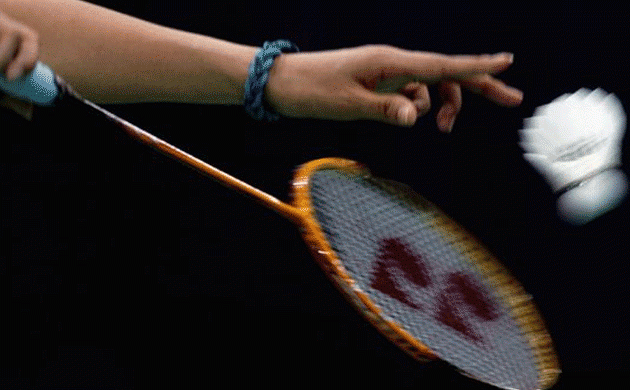Indian Badminton Team Advisor And Arunachal Resident Denied Chinese Visa
ITANAGAR: On November 12, all but one of the 14-member contingent of the Badminton Association of India (BAI) left for China to participate in the Thaihot China Open in Fuzhou, Fujian province. The reason for the 14th member not going? He is a resident of Arunachal Pradesh.
A premier calendar event, the Thaihot China Open is one of Badminton World Federation’s (BWF) key events. The BAI had been invited to participate in the event that began yesterday by the Fuzhou Municipal Sports Bureau. Accordingly, the BAI submitted all required documents of the Indian contingent at the Chinese embassy in New Delhi applying for visas.
While 13 members got their visa and they left for Fuzhou on November 12, they did so without the team manager- Bamang Tago.
Tago is currently secretary of the Arunachal Pradesh State Badminton Association and was selected as manager of the Indian Badminton team that left for China. When the visas of the 13 members arrived, Tago and BAI official Anand Kare inquired about the delay. The response they received, Tago says, was that “it needs approval from China”.
Arunachal Pradesh shares a 1080-km long border with the People’s Republic of China which has long claimed much of the state’s territory as its own as part of South Tibet. While there are no calls within the state for seceding to China, it has never stopped the northern neighbour from raising the issue on a frequent basis. In 1962, Chinese forces even entered deep inside Indian territory up to Tezpur in Assam before abruptly returning.
The Chinese government to this day denies normal visas to domiciles of the state and instead issues stapled visas, indicating that the area in question is disputed. That, Tago says, is the reason why he was denied a visa- stapled or otherwise.
In a written statement, Tago said his visa was withheld because of him being a domicile of Arunachal Pradesh and said it was “discrimination” on part of the Chinese.
“Denying of visa by China and restrictions on stapled visas by Indian immigration authorities to residents of Arunachal is a violation of Article 13, sub-clause (2) of the Universal Declaration of Human Rights, (1948) and the Article 12, sub-clause (2) of the International Covenant on Civil and Political Rights (1966) adopted by UN General Assembly,” Tago wrote.
This is of course, not the first time that a resident of the state has faced such a scenario.
In 2011, a five-member karate team consisting of athletes from the state that was headed to Quanzhou in Fujian province to take part in the Asian Karate-do Championship were prevented from boarding their flight by Indian immigration officials at Indira Gandhi International Airport at New Delhi for possessing stapled visas issued by the Chinese government.
A similar incident occurred in January 2012 when a team of weightlifters from the state were prevented from boarding their flight for possessing stapled visas.
And in October 2013, two young archers from the state were unable to participate in the Youth World Archery Championship in Wuxi.
Back then in 2013, current Union minister of state for home affairs and MP from the state, Kiren Rijiju, had strongly condemned the move and threatened to quit as an office-bearer in the Archery Association of India.
Rijiju, who came back to power in 2014 after a five-year gap, has not spoken much on the issue since being inducted in Prime Minister Narendra Modi’s government. In fact, in September 2014 Rijiju was conspicuously absent when the Chinese Premier Xi Jingping came for delegation-level talks. Interestingly, Rijiju was most vocal on the issue when he wasn’t in power.
Back in 2013, Rijiju wrote to then Prime Minister Manmohan Singh that the Indian government should allow residents from the state to visit China on stapled visas. He had argued that earlier the Chinese government would deny issuing visas altogether and the fact that it now issues stapled visas was a sign of its “softened” position.
Tago also met Rijiju today who reportedly told him he would look into the matter.
Chinese position on the issue too has flipped-flopped over the years.
In 1981, former legislative assembly speaker TL Rajkumar was refused a visa on grounds that he did not require one since he was a Chinese citizen! In 2007, China denied visas to senior officials on two occasions.
Rijiju himself had visited China during the 2008 Beijing Olympics when the Chinese gave out normal visas in order to save itself from any international scandal.
Speaking from Delhi, Tago said that the Chinese embassy had asked him to withdraw his application seeking a visa. He too said that residents from the state should be allowed to travel to China even on stapled visas, which would not undermine India’s position on the issue.
This latest move by China may have been triggered by more recent developments.
Last month, US ambassador to India Richard Verma visited the Tawang area of the state on the invitation of Chief Minister Pema Khandu.
Since Tawang is in the centre of the contentious issue, Chinese Foreign Ministry spokesman Lu Kang said the country was “firmly opposed” to the visit and would “damage the hard-earned peace and tranquillity of the China-India border region”.
What may have been the last straw however is the announcement that Tibetan religious leader, the Dalai Lama, will visit the state, which has a substantial Buddhist population, next year.
Soon after the announcement in October, Kang said that “China’s position on the eastern section of China-India border is consistent and clear. The Dalai clique is engaged in anti-China separatist activity and has very disgraceful behaviour on issues relating to China-India boundary question”.
Today, Tago poignantly asked: If India is serious about the stapled visa issue why don’t all Indians stop applying for Chinese visas until they issue regular visas to Arunachalese?





